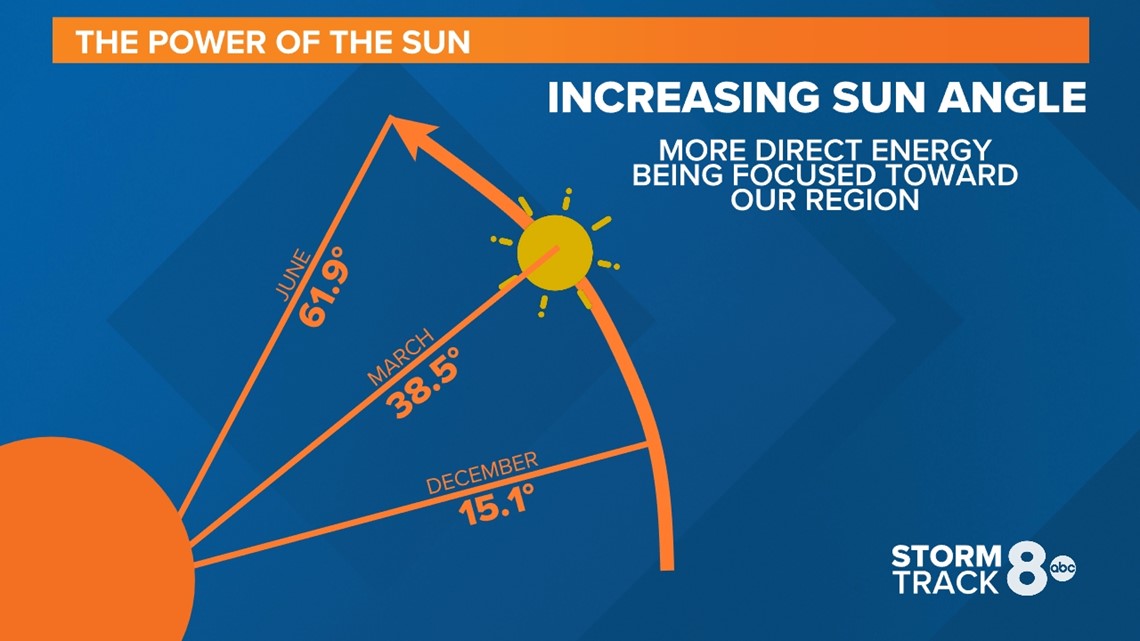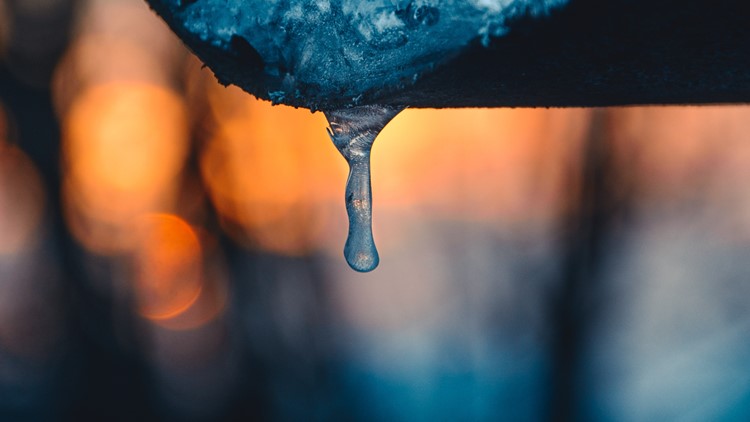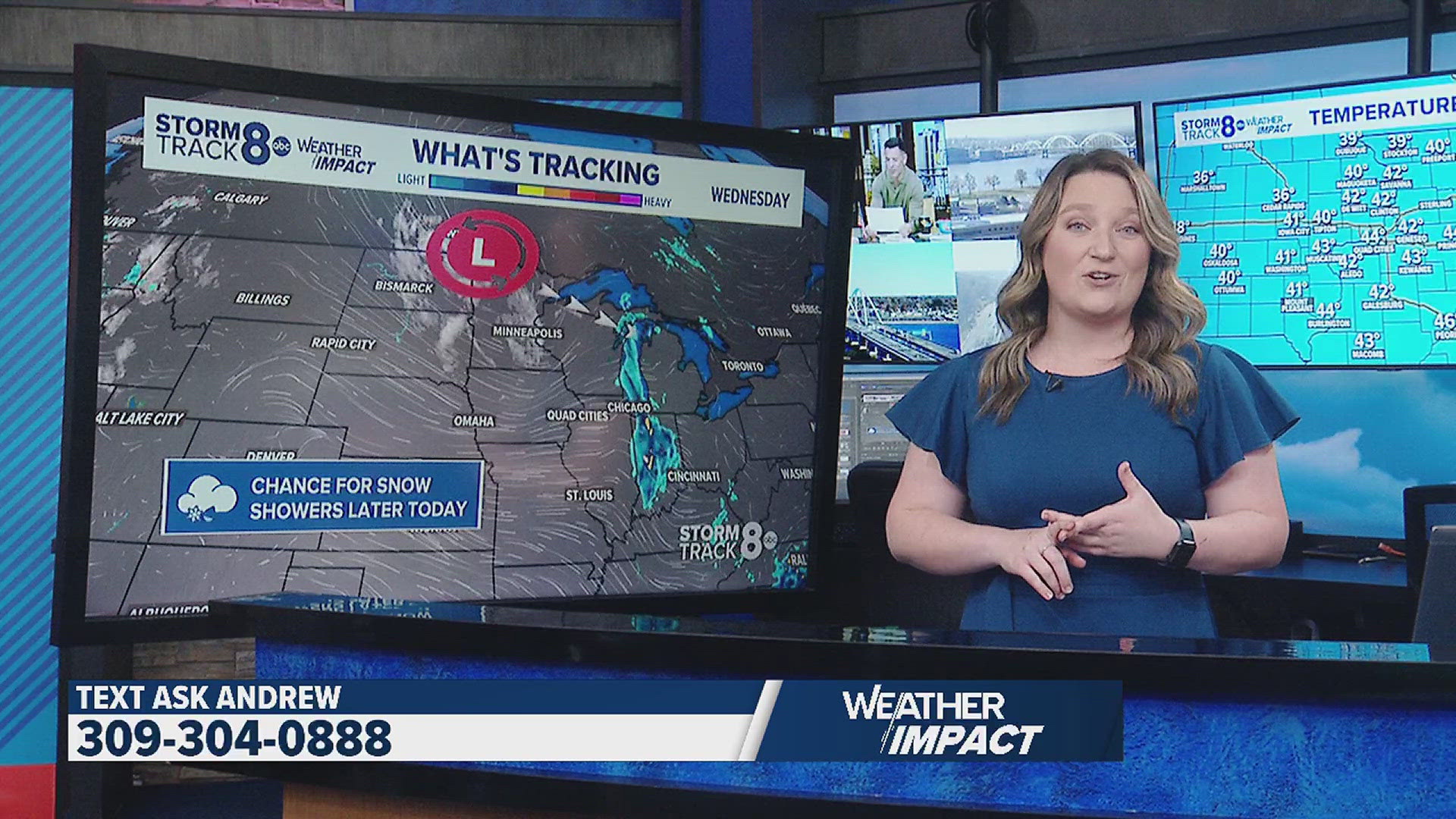MOLINE, Ill. — The month of February is finally here and that means we'll be seeing a lot more melting going on in the weeks ahead. You may have already noticed that in this recent cold snap that sent temperatures well below freezing, the snow on driveways and roofs continued to melt! How is that possible? Let's dig in!
How can snow melt when temperatures are well below freezing?
The temperature of the air surrounding the snowpack is only one of a few factors that determine when and how much snow will melt on a given day. When you factor in the amount of energy it takes to warm a very large mass of air versus a single object, like an area of snow, the difference is fairly large!
You've likely heard the term Albedo before. It's how we measure the ability of an object to absorb incoming heat energy from the sun. Snow, while it has a very high albedo, meaning it reflects a majority of the sun's energy, is still capable of absorbing enough incoming energy to increase its temperature above the freezing mark. So, despite an air temperature that is well below freezing, the sun's incoming energy can more than compensate for that and start to melt the snowpack.


The angle of the sun plays the biggest role in how much energy is absorbed here at ground level. The lowest angle, which occurs on the winter solstice in December, spreads more of the energy out over greater distances. This doesn't allow for the majority of the energy from the sun to be concentrated in one particular region.
However, as we near the spring and summer seasons, that angle grows substantially, focusing more energy towards the northern hemisphere, and hence, bringing us our warmer seasons.
So, it's not always about temperature. You have to also factor in what the sun is doing, too!
Have a question you would like me to answer for an upcoming Ask Andrew segment? Submit it, here.



